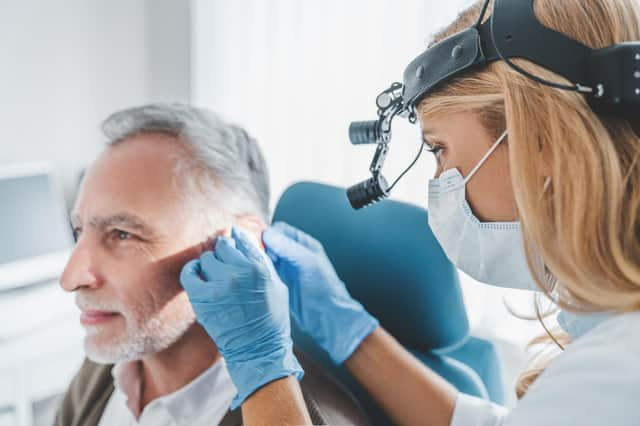Nerve hearing loss: Edinburgh expert studies latest scientific research to find a cure


Hearing loss has a massive impact on those who develop the condition, as it impacts almost every part of life.
Younger patients could see their education affected, people may find it narrows their career options, and the social exclusion caused by untreated hearing loss is isolating. For the elderly, hearing loss has clear links to loneliness, falls and dementia.
Leading the campaign for a cure with dedicated UK funding is RNID, the charity which supports those with nerve hearing loss and tinnitus.
Stephen Fairfield, owner of Fairfield Hearing in Edinburgh, said: “There are currently no effective cures for hearing loss and tinnitus, and a lot of time and money is spent on managing the conditions, and providing aids and support.
“I see first-hand how hearing loss and tinnitus impacts on people’s lives, and as a hearing healthcare practitioner I would be delighted to finally see a permanent solution found that worked for many of my customers.
“I fully support the work of RNID and the funding it dedicates to finding a cure. Some of the results from that and other research offers hope that a solution will be found, hopefully in the near future.”
Can hearing be restored?
RNID is concentrating its research into two fields … finding a cure, and improving the quality of devices and aids to help people hear.
The most common cause of hearing loss is damage to the cochlea, within the inner ear, and the sensory cells within. These cells cannot be regrown, so currently the resultant hearing loss is permanent.
Stem cell research is hoping to find a way to regenerate the damaged inner ear hair cells and auditory nerves which carry sounds to our brains – early results are encouraging, but scientists are not there yet. Gene therapy may also be able to play a part.
Other research is ongoing in the pharmaceutical world, to see if new drugs can be developed to encourage the growth of new, healthy cells.
Prevention rather than cure
As with other health care, the real hope is to stop hearing loss developing at all, and lots of research is working on prevention. Scientists are going right back to basics, to better understand why hearing loss happens to some people and not others, and what causes each type of hearing loss, in the hope of preventing or lessening the range of hearing loss people suffer.
Many people would like to see better monitoring of the nation’s hearing; in Scotland, newborn babies receive hearing tests free on the NHS, but unlike routine dental or eye check-ups, hearing tests are rarely repeated on the NHS until people show signs of problems.
There’s excitement around some simple genetic tests which may identify people at risk of hearing loss. Once this is fully tested and available, this could become a standard part of testing at birth, so proactive steps can be taken.
Tinnitus
Tinnitus is noise that doesn’t come from an external source, and can impact massively on the sufferer’s quality of life. More than seven million people in the UK have ongoing tinnitus, including ringing, whooshing, whistling and other disruptive sounds.
It is hoped that the case and then the cure can be found through detailed brain research.
What can be done now?
Stephen said: “While it is true we cannot cure hearing loss or prevent it currently, we can help alleviate the symptoms and improve people’s quality of life.
“A trained hearing healthcare practitioner can spend time with people listening to how hearing loss impacts on their lives, measuring the extent of the problem then suggesting a number of devices to help. People are welcome to book a visit to the clinic to discuss how we can help.”
For more information visit fairfieldhearing.earsure.health
Visit Fairfield Hearing, 2 Stafford Street, Edinburgh EH3 7AU, call 0131 378 5800 or email [email protected] to make an appointment.